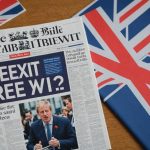Notable Recent UK News Stories Shaping Media Perceptions
Recent UK news stories have profoundly impacted public trust and media perceptions. Over the past year, several high-profile events dominated headlines, from political developments and economic challenges to major social issues. These stories often shaped the narrative frame, influencing how audiences perceive the reliability of news outlets.
Editorial choices play a critical role in this process. Sensational headlines and selective emphasis on specific aspects of a story can sway public opinion and trust. For example, coverage that highlights controversy over balanced reporting tends to amplify skepticism toward media. Conversely, in-depth investigative pieces with clear fact-checking foster increased confidence.
Also to discover : What role does the UK press play in shaping public opinion?
Notably, media events like breaking political scandals or major policy announcements sparked shifts in public discussion about media reliability. These moments prompted debates on how news is presented and questioned the transparency of journalistic practices. Patterns emerged linking these stories to fluctuations in trust metrics, illustrating the close connection between what is reported and how audiences evaluate their news sources. Understanding these dynamics is crucial for assessing the overall relationship between news content and public trust.
Shifts in Public Trust: Data and Analysis
Recent data on public trust in media reveals fluctuating confidence levels across different UK demographics. Polls conducted before and after major UK news stories show noticeable shifts. For instance, trust dipped following controversial political coverage but rebounded after comprehensive investigative reports.
In the same genre : What are the implications of Brexit on UK news media?
UK media trust statistics highlight a growing divide between traditional and digital news consumers. Surveys indicate that while older audiences tend to place more faith in established newspapers and broadcasters, younger groups often rely on digital platforms but express more scepticism, partly due to concerns over misinformation.
These trends underscore how audience confidence responds dynamically to media events. Heightened scrutiny of reporting accuracy, combined with editorial transparency, appears to influence trust more than the medium itself. Notably, spikes in engagement often coincide with contentious stories, suggesting the public’s desire for clarity and accountability.
Understanding these patterns offers valuable insight into how news coverage impacts perception. By regularly monitoring public trust in media, analysts can better anticipate how UK news stories will shape future audience confidence and trust.
Expert Opinions on Factors Influencing Trust
Media experts consistently emphasize that transparency, fact-checking, and editorial integrity are crucial trust factors shaping audience confidence in the UK. Journalists and academics agree that clear disclosure of sourcing and prompt corrections enhance the credibility of news organisations. When media outlets prioritize these elements, public trust tends to improve measurably.
Conversely, sensationalism and misinformation significantly undermine trust. Media analysts in the UK note that exaggerated headlines or unchecked viral content lead to confusion and scepticism. This is especially true when factual errors persist without timely corrections, damaging the perceived reliability of the entire news system.
Experts highlight the importance of a balanced editorial approach that resists sensational tendencies. They suggest consistent investment in fact-checking resources as essential for maintaining the public’s faith. Additionally, ongoing media analysis UK frequently points to the benefits of open dialogue between outlets and their audiences to address concerns and demonstrate accountability.
Ultimately, trust factors are interconnected. Building and sustaining public trust demands not only accuracy but also efforts to transparently handle inevitable mistakes, fostering a more informed and engaged readership.
Social, Political, and Ethical Implications of Changing Trust
Shifts in public trust exert profound effects on public discourse and democratic processes in the UK. When trust in media declines, citizens may become disengaged or polarized, undermining informed debate essential for a healthy democracy. Conversely, rising media credibility fosters greater civic participation and confidence in political decisions.
Politically, fluctuating trust levels influence how government actions are perceived and scrutinized. A decline in trust toward news outlets can weaken media’s role as a democratic watchdog, allowing misinformation or unchecked power to flourish. In contrast, increased trust supports accountability, encouraging transparent governance and public oversight.
Ethical journalism emerges as a pivotal factor amid these dynamics. The UK media faces ongoing debates around responsibility, especially regarding fairness, privacy, and balanced reporting. Maintaining ethical standards not only shapes how stories are told but also directly impacts media credibility. Failure to uphold these principles risks further eroding trust and harming democratic values.
In summary, the social impact of changing trust intertwines deeply with political realities and journalistic ethics. Strengthening this trust requires continued commitment to ethical practices that respect audience rights while enhancing transparency and fairness across all media platforms.




